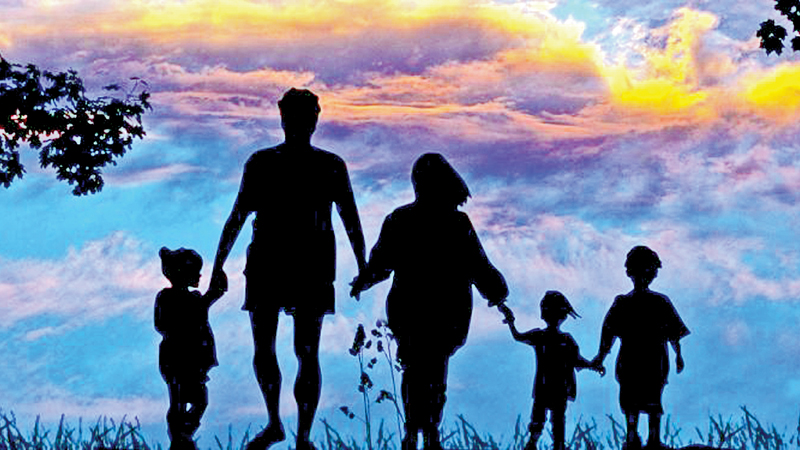You don’t notice your parents growing old until one day you do. It’s in the way your mother moves a little slower. It’s in your father’s silence when he used to speak with certainty. You realise you’ve spent so much time becoming an adult, you forgot to look back at the two people who made it all possible. The Global Day of Parents, marked every year on June 1, is not just another calendar date. It’s a reminder to pause and say thank you. But remember that every day is a Parents’ Day.
The world runs fast. We celebrate success, ambition, fame. But the work of parenting doesn’t make noise. It doesn’t come with medals or Instagram posts. It’s quiet, repetitive, deeply personal. And that’s exactly why a day like this matters. Because if we don’t stop to acknowledge it, who will?
Think about it. Before we spoke our first word, someone spoke to us. Before we could walk, someone carried us. They held our heads when we were sick, checked if we were breathing in the middle of the night, stayed up through school projects, heartbreaks, tantrums. They worried more than they ever let on.
But life moves on, and somewhere along the way, we start taking it for granted. The packed lunches, the clean clothes, the presence at every school meeting. We assume it all just happened. And then suddenly, we’re adults, and we see what it takes — the cost of living, the exhaustion, the endless choices and second-guessing. And we realise they were winging it, just like we are. But they still showed up every day.
That’s what this day is about. Not just love, but effort. Not just the title of “parent,” but the work behind it.
Why set aside a day?
People say every day should be Parents’ Day. Maybe they’re right. But let’s be honest — most of us don’t call home enough, or say what we really feel. We’re all caught up in something. Work. Children of our own. Deadlines. Noise. This day forces us to stop. To pick up the phone. To show up.
It also helps shift attention to those who don’t always get it — single parents, adoptive parents, foster parents, grandparents stepping in when no one else will. It’s easy to forget how many people quietly carry the world on their shoulders. They don’t post about it. They just do the job.
And there’s another reason. Parenting today is harder than it’s ever been. The rules keep changing. Technology has turned childhood into a minefield. School pressures, social media, mental health, identity — these weren’t things most parents a generation ago had to deal with at this scale. So if nothing else, this day says: we see you. You’re doing better than you think.
The world’s different now. Families aren’t always nuclear, and thank goodness for that. But the idea of family — whatever form it takes — still holds us together. When life falls apart, it’s your people you call. Not your job. Not your achievements. Just someone who’ll sit next to you and not need an explanation.
The Global Day of Parents reminds us that no policy, no invention, no institution can ever replace what happens at home. That’s where we learn how to treat others. Where we learn about trust, safety, resilience. A good home doesn’t guarantee a perfect life, but it makes a difference. And you only realise how much when you grow up and try to build one of your own.
Parenting isn’t automatic
There’s this idea that you become a parent and everything clicks. That instinct takes over. But love isn’t the same as knowing what to do. Real parenting — the kind that builds strong, kind people — takes learning. It takes messing up and apologising. Listening. Adapting. Getting it wrong, and trying again.
Good parenting is more than rules or love. It’s about being emotionally present, setting boundaries, knowing when to hold on and when to let go. And no one is born knowing how to do that. People figure it out as they go, and the best ones never stop learning.
This is why parenting needs support, not just sentiment. We should talk more openly about how hard it is. We should have classes for it, support groups, workplaces that don’t punish mothers and fathers for being involved at home. It’s not a private journey. It’s a collective one.
Say thank you while you can
There are things we only learn to say too late. Thank you for believing in me. Thank you for the sacrifices you never mentioned. Thank you for letting me go, even when it hurt you.
 The Global Day of Parents is a good time to say those things now. To sit down with your mother and ask about her childhood. To hear your father’s stories before he forgets them. To forgive what needs forgiving. And if your parents are no longer here, maybe light a candle, cook their favourite dish, or just talk to them in your head. Grief, after all, is just love that has nowhere to go.
The Global Day of Parents is a good time to say those things now. To sit down with your mother and ask about her childhood. To hear your father’s stories before he forgets them. To forgive what needs forgiving. And if your parents are no longer here, maybe light a candle, cook their favourite dish, or just talk to them in your head. Grief, after all, is just love that has nowhere to go.
Of course, not everyone had loving parents. Some grew up in homes filled with silence, fear, or distance. But even then, this day can be about reflection. About healing. About deciding to parent differently. Or choosing to thank the teacher, the aunt, the neighbour — whoever it was who stepped up when your own didn’t.
Parenting is not biology. It’s action. It’s love shown over time. Anyone who gave you that deserves to be remembered.
If you’re a parent, reading this. Tired, worried, wondering if you’re doing enough? You probably are. The very fact that you care is a good sign. No child needs perfection. They need presence. They need to know you’re trying. And if you’ve made mistakes, welcome to the club. We all have.
There’s no medal at the end. No applause. Just a child who grows up and maybe, one day, understands. That’s the quiet hope you live with. That’s the long game of parenting.
One day, if we’re lucky, we become caretakers to those who once took care of us. We take them to appointments. We remind them to take their pills. We sit with them in silence. And we understand, finally, what it meant — all those years ago — when they carried us.
The Global Day of Parents isn’t about grand gestures. It’s about noticing. About being grateful. About realising, in the middle of your busy life, that someone once gave you theirs.
So take a moment. Pick up the phone. Go home if you can. Say what’s been waiting to be said. While they can still hear it.




